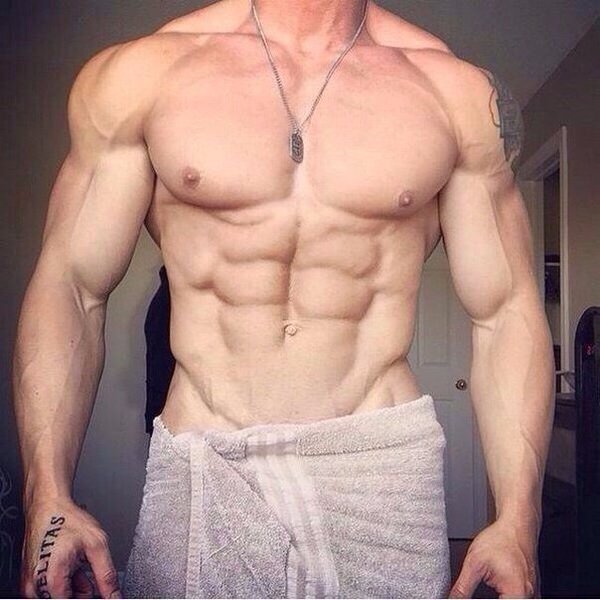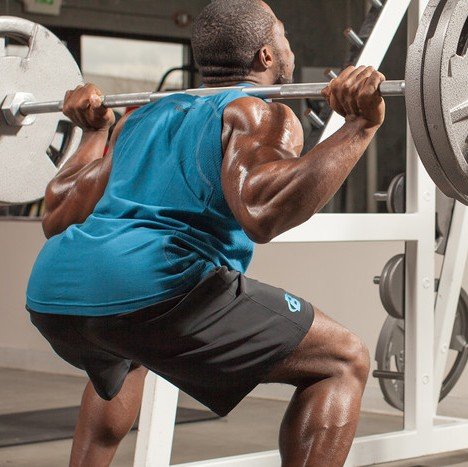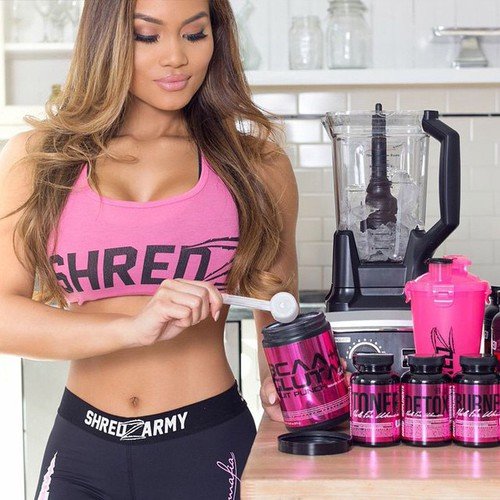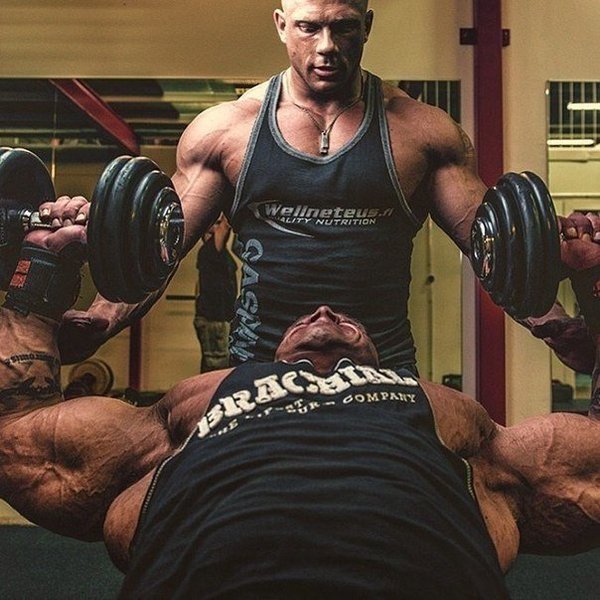Too often, people call themselves "hardgainers" like they have no control over the matter. "Sorry man! This is just how I am. I eat so much, and I've tried everything."
Smart coaches and nutritionists can usually burst this bubble pretty quickly. By asking a few questions, we learn that they regularly miss meals, train only once or twice a week, or run screaming for the treadmill the second they can't see all of their abs.
But the biggest problems definitely take place in the kitchen. Start building muscle today by correcting these four muscle-building mistakes!
Mistake 1: You Eat Too Much Protein
The bodybuilding community has created a fourth macronutrient: brotein.
Unlike its brother, protein, the more brotein you eat, the more you grow—or at least that's what you tell yourself while you scarf it. The fact of the matter, however, is that I haven't seen any research on eating wildly excessive amounts of protein leading to additional muscle gains. But I have seen research on the amount of protein necessary to optimize muscle growth.
Research published in the Journal of Sports Sciences reviewed multiple studies and determined optimal adaptations from protein among athletes can be achieved by consuming 0.6-0.8 grams per pound of body weight daily. Notice there's no "1" to the left of the decimal point. Pushing protein beyond this point probably isn't going to cost you gains, but it's likely going to provide a significantly reduced return on investment, so to speak, as measured by additional muscle protein synthesis. There's probably no need for a third—or perhaps even a second—chicken breast at dinner.
Too much protein not only costs more at the cash register, but it can adversely affect your appetite for consuming other foods, including higher-calorie fat and workout-fueling carbohydrates, both of which are necessary to drive growth. That's because protein triggers the release of numerous fullness-promoting hormones, namely cholecystokinin (CCK) and peptide YY (PYY), both of which send satiety signals to your brain and help curb your appetite.
In other words, curb your appetite, curb your growth. In this case, higher protein intakes may be a better choice for fat loss than muscle gain.
Solution: Set your protein intake to 0.6-0.8 grams per pound of body weight per day, and distribute your intake evenly throughout the day. That's 120-160 grams per day for a 200-pound individual, or between 4-6 30-gram meals. So don't worry, bro: It's still plenty.
Mistake 2: You Eat Too Clean
I applaud your fiber-focused, nutrient-density-driven dining decisions. I really do. But if this is the only way you're eating, it may be what's holding you back from finally packing on the pounds.
Why? Your consistent meal of chicken, brown rice, and broccoli is very high in fiber, which slows down digestion and promotes fullness. With this approach, you'll leave too many calories on the table and never have the big-time appetite—let alone room in your stomach—to take in the amount of calories you need for gainz.
Solution: Select low-fiber carbs at both your pre- and post-workout meal. This will provide your body with more fuel to train hard and quickly replenish your stores. By choosing white or jasmine rice over brown rice or oats, you won't fill up as easily and will be able to consume more fuel without an increased risk of GI distress.

Also, consider cutting loose and breaking all the rules for at least one meal a week to further assist in your high-calorie efforts.
Mistake 3: You Eat Too Few Meals
To gain weight, you must take in more calories than you burn—there's no way around it. By choosing to cram the calories you need into too few meals, however, you set yourself up for failure right from the start. What's more feasible: spreading 3,600 calories across three, or six meals per day?
If you're new to the muscle-focused lifestyle, you may think the former is simpler, but those who've been around the block know it's the latter. Eating all those huge meals can leave you feeling bloated, weighed down, and ready to give up the ghost before you've gained any real weight.
Plus, evenly distributing your protein across several meals versus fewer meals has been shown to optimize muscle protein synthesis rates across 24 hours. The more often you can flip the muscle-building switch, so to speak, the more opportunities for growth you create.
Solution: If you're looking to add size, strive to eat at least six meals on most days. Not only will this help to keep portions more manageable per meal, but it will also help you consistently provide your muscles with the fuel they need for growth.
Mistake 4: You Underutilize Liquid Calories
If lack of appetite is your biggest hurdle to packing on the pounds, eating more frequently will be a great first step in the right direction. But you may quickly come crashing into your limits of meal prep, dishes, desire to eat, and even chewing. Jaw fatigue: The struggle is real!
Just as cutting out liquid calories can be crucial for someone looking to lose weight, adding them in can be a game-changer for gaining weight. Why? It's much easier to drink liquid calories when you're not feeling overly hungry and the clock tells you it's mealtime. Aside from all the premade options out there, you can also follow a simple recipe, or even just throw numerous ingredients into a blender and hit the button.
Looking to add even more calories to your shake? Throw in some dairy, fruit, oats, or nut butter, as I recommend in my "6 Monster Shakes for XXL Dudes" recipes.
Solution: If you're trying to maximize the calories you need to support growth, plan on having one or more shakes daily as snacks between meals. Of course, shakes can serve as breakfast, too, an especially good idea if you typically run out the door without eating.
Source: Too





